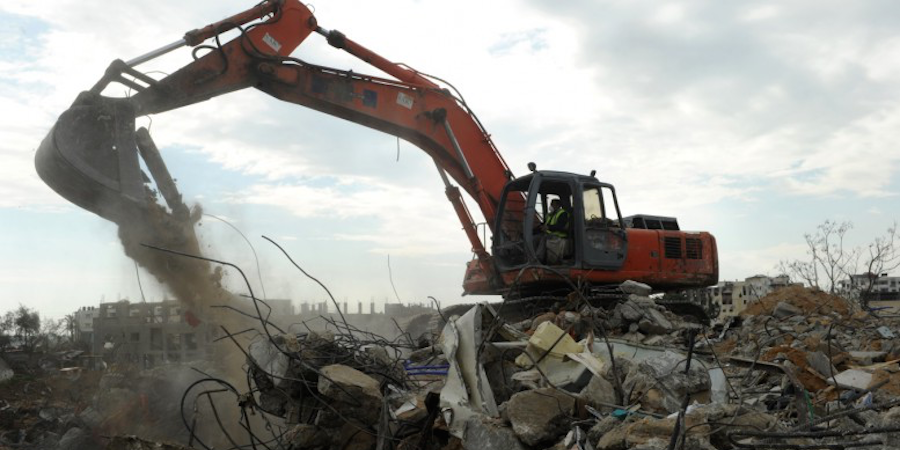Israeli bulldozers, escorted by heavily armed Israeli forces, demolished a Palestinian home on Thursday, in the unrecognized village of al-Zarnouq, in the Negev area of southern Israel.
According to local sources, large numbers of Israeli forces raided al-Zarnouq and began to demolish the house, under the pretext that it was built without an Israeli building permit.
Sources confirmed, according to Ma’an, that Israeli forces demolished a 130-square-meter home belonging to Akef Abu Quwaider, who lived in it along with his family for more than five years.
Residents of the village said that “Israeli authorities refuse to grant us permits to build our homes and to live our lives. Israel works hard to remove us from our land.”
In addition, Israeli authorities had previously notified Abu Quwaider several times, of the demolition, and repeatedly threatened him in attempts to force him to demolish his own home; however, he refused.
The Israeli government has plans to evacuate thousands of residents from al-Zarnouq to the recognized village of Rahat in order to build over the land for new housing for non-Bedouin Israeli citizens.
Israeli newspaper Haaretz reported that the Israeli government had approved plans, in 2011, to transfer tens of thousands of Bedouins in unrecognized villages, including al-Zarnouq, into officially recognized settlements.
According to Israeli human rights group Adalah, the plan would “result in the destruction of 35 ‘unrecognized’ Arab Bedouin villages, the forced displacement of up to 70,000 Arab Bedouin citizens of Israel, and the dispossession of their historical lands in the Negev.”
More than half of the approximately 160,000 Negev Bedouins reside in unrecognized villages, according to the Association for Civil Rights in Israel (ACRI).
Rights groups have claimed that the demolitions in Bedouin villages is a central Israeli policy aimed at removing the indigenous Palestinian population from the Negev and transferring them to government-zoned townships to make room for the expansion of Jewish Israeli communities.
(photo: Alternative Information Center)

